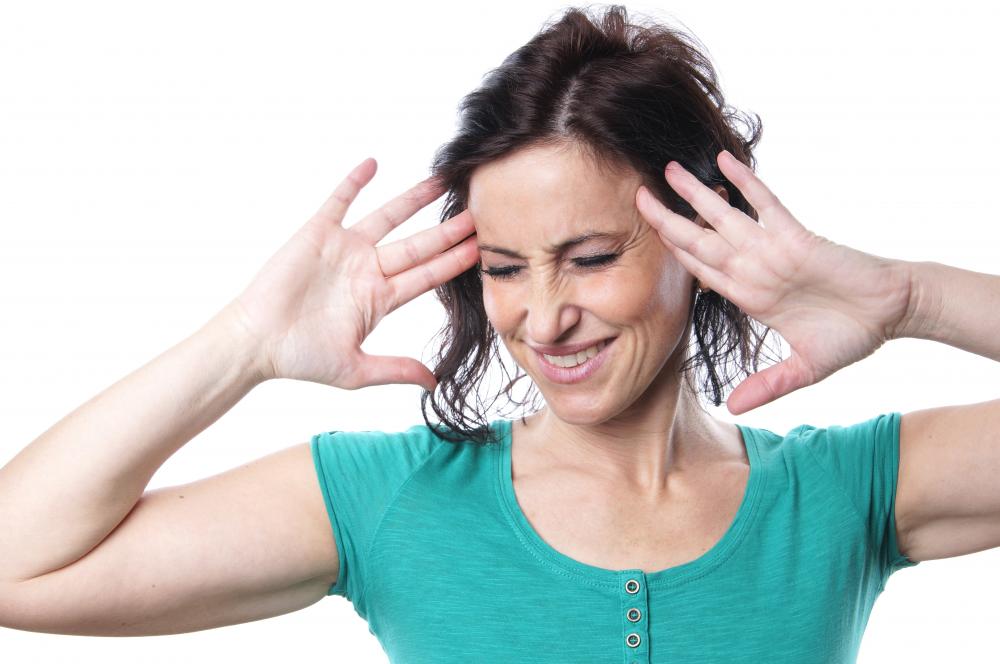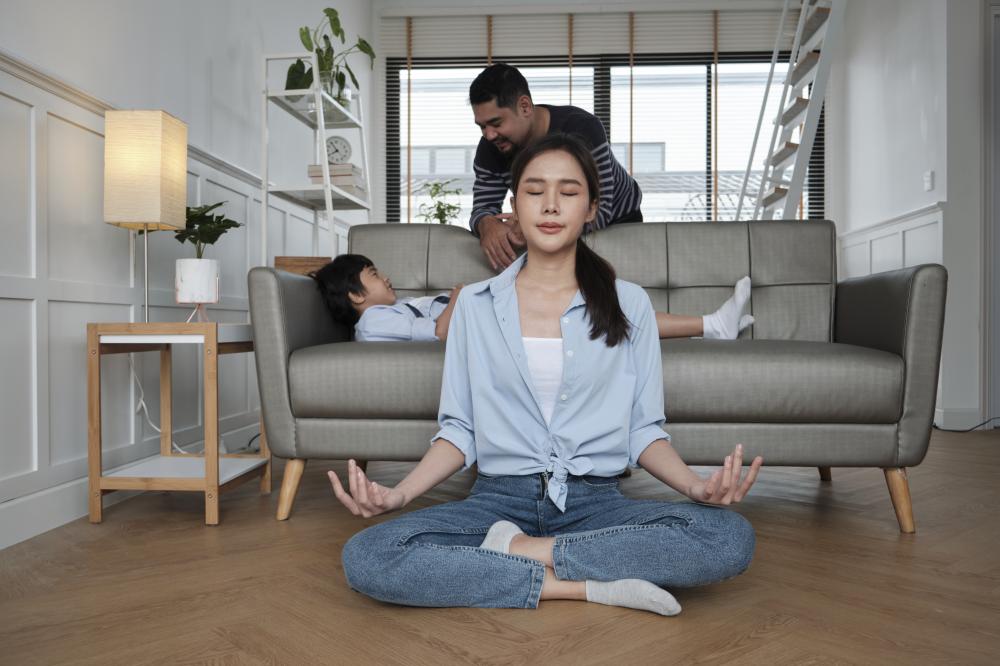Get Rid Of Anxiety

Understanding Anxiety
Anxiety is a common human experience, characterized by feelings of worry, nervousness, or unease about something with an uncertain outcome. It's a natural response to stress or threat, playing a critical role in how we navigate challenging situations. However, when anxiety becomes persistent or overwhelms our ability to cope, it may be time to seek strategies to get rid of anxiety and regain control of our emotional well-being.
A Holistic Approach to Anxiety
As a Holistic Health Coach, I've learned that addressing anxiety requires a comprehensive approach that considers the whole person: body, mind, and spirit. It's not just about managing symptoms, but about understanding and treating the underlying causes of anxiety. This involves a combination of practices focusing on the physical body, emotional balance, mental health, and spiritual fulfillment.
Breathing Techniques
Transformational Breath®Breathing is the bridge between our body and mind, directly influencing our emotional state. Transformational Breath® is a powerful technique that encourages deep, diaphragmatic breathing, helping to calm the nervous system and reduce anxiety. By focusing on full, conscious breaths, we can shift our body out of the stress response and into a state of relaxation.
Coherent BreathingAnother effective method is Coherent Breathing, which involves breathing at a rate of five breaths per minute. This slows down the breath to a rhythm that positively affects the heart rate and, in turn, the brain's mood centers. Regular practice can help to get rid of anxiety, enhance focus, and promote a greater sense of peace.
Mindfulness and Meditation
Mindfulness and meditation are powerful tools for managing anxiety. They teach us to be present in the moment, observing our thoughts and feelings without judgment. This can help break the cycle of anxious thoughts by fostering a state of calm awareness. Even a few minutes a day can make a significant difference in reducing anxiety levels.
Nutritional Guidance
What we eat also plays a critical role in how we feel. Certain foods can exacerbate anxiety, while others can help to reduce it. As part of a holistic strategy to get rid of anxiety, I recommend focusing on a balanced diet rich in whole foods, healthy fats, lean proteins, and complex carbohydrates. Reducing caffeine and sugar intake can also help manage anxiety symptoms.
Emotional Freedom Techniques (EFT Tapping)
EFT Tapping is a form of psychological acupressure that uses the fingertips to tap on specific points on the body while focusing on particular negative emotions or physical sensations. Tapping can help manage stress and anxiety by sending signals to the part of the brain that controls stress, encouraging a calming effect.
EcoTherapy
Spending time in nature, or EcoTherapy, has been shown to lower stress, improve moods, and reduce feelings of anxiety. The simple act of walking in a forest or park can help to clear the mind, improve physical health, and foster a deeper connection to the world around us, promoting feelings of tranquility and well-being.
Effective Communication Skills
Anxiety often stems from or is exacerbated by how we communicate with others and ourselves. Developing effective communication skills can help to reduce misunderstandings, conflict, and the anxiety that often accompanies them. Learning to express our needs and feelings clearly and assertively can lead to stronger, more supportive relationships and a reduction in anxiety.
Seeking Professional Help
While these holistic approaches can be highly effective in managing mild to moderate anxiety, it's important to recognize when professional help is needed. If your anxiety is severe, persistent, or significantly impacts your ability to function in daily life, reaching out to a mental health professional can provide the additional support and guidance needed to get rid of anxiety.
- Psychotherapy, such as Cognitive Behavioral Therapy (CBT), can offer strategies to change negative thought patterns and behaviors associated with anxiety.
- Medication may be considered in some cases, often in conjunction with therapy, to help manage symptoms.
- Support groups provide a sense of community and mutual understanding that can be incredibly comforting to those struggling with anxiety.
In my journey as a Holistic Health Coach, I've seen firsthand the transformative power of taking a holistic approach to health and well-being. By integrating physical, emotional, mental, and spiritual practices, we can all find paths to manage and, ultimately, get rid of anxiety. Remember, you're not alone in this journey, and with the right tools and support, a life free from the grip of anxiety is entirely possible.

What is the 3 3 3 rule for anxiety?
Let me share a simple yet profound technique that many find helpful, known as the 3 3 3 rule for managing anxiety. This method is about using your senses to ground yourself in the present moment, a powerful tactic to disrupt the cycle of anxious thoughts. Here's how it works: when you feel anxiety creeping up, start by naming three things you can see around you. It could be anything - a bird outside your window, a photo on your desk, a plant in the corner of the room. Then, move on to identify three sounds you can hear. Maybe the hum of your computer, birds chirping, or distant traffic. Lastly, move three parts of your body - your fingers, toes, and shoulders are great choices. This exercise helps anchor your mind, pulling it away from anxious thoughts and bringing your focus to the present moment. It's a practical, straightforward technique that you can use anywhere, anytime you need to find calm.
What is the best way to cure anxiety?
As a Holistic Health Coach, I've come to understand that there isn't a one-size-fits-all cure for anxiety. The most effective approach considers the whole person - body, mind, and spirit. Holistic methods such as deep breathing techniques, mindfulness, meditation, nutritional adjustments, and incorporating movement into your daily routine can collectively contribute to significant improvements. For some, Emotional Freedom Techniques (EFT) or Cognitive Behavioral Therapy (CBT) with a professional may be beneficial. It's also crucial to create a personal toolkit of strategies, as what works for one person may not work for another. Tailoring your approach and being open to a combination of methods usually yields the best outcomes. Remember, seeking professional guidance when anxiety feels unmanageable is always a wise step.
What calms down anxiety?
Calming down anxiety is about finding what soothes your nervous system and mind. Techniques such as deep diaphragmatic breathing, mindfulness practices, and gentle yoga can be incredibly calming. Engaging in activities that you enjoy and that keep you focused in the present, like drawing, listening to music, or spending time in nature, can also significantly reduce anxiety levels. It's beneficial to experiment with different strategies to discover what resonates with you the most. Additionally, maintaining a regular sleep schedule and ensuring a balanced diet can support your overall emotional balance, making it easier to manage anxiety when it arises.
Is it possible to cure anxiety naturally?
Yes, it is entirely possible to manage and even overcome anxiety using natural methods. Many individuals have found relief through practices such as breathing techniques, meditation, yoga, nutritional changes, and EcoTherapy. It's important to note that these approaches require time, patience, and consistency. Integrating these practices into your daily life can help alter your body's stress response, promote relaxation, and support emotional resilience. Incorporating natural supplements, as advised by a healthcare professional, can further support your journey. However, it's vital to remember that severe or persistent anxiety may also necessitate professional support. Natural methods can complement traditional treatments, offering a comprehensive approach to managing anxiety.
How significant is nutrition in managing anxiety?
Nutrition plays a critical role in managing anxiety. What we consume directly impacts our brain function and, consequently, our emotions. A diet rich in whole foods, lean proteins, healthy fats, and complex carbohydrates can support brain health and balance our mood. Conversely, high intakes of caffeine, sugar, and processed foods can exacerbate anxiety symptoms. Hydration is also key, as even mild dehydration can affect our mood and increase stress levels. By focusing on a balanced diet and observing how certain foods affect your anxiety, you can make informed choices that support your emotional well-being.
Why is sleep important in managing anxiety?
Good quality sleep is foundational for managing anxiety. During sleep, our bodies and minds undergo crucial processes of repair, healing, and consolidation of memories. Lack of sleep can exacerbate anxiety symptoms, creating a vicious cycle where anxiety leads to poor sleep, and sleep deprivation heightens anxiety. Establishing a healthy sleep routine can help break this cycle. Techniques such as limiting screen time before bed, ensuring a comfortable sleep environment, and practicing relaxation exercises can promote better sleep. Remember, it's not just about the quantity of sleep but also the quality that counts in effectively managing anxiety.
When should you seek professional help for anxiety?
While natural and holistic approaches can be incredibly effective in managing anxiety, it's crucial to recognize when professional help is needed. If your anxiety is severe, persistent, and impacts your daily functioning, reaching out to a mental health professional is a necessary step. Symptoms such as overwhelming panic attacks, persistent worry, avoidance of social situations, or significant changes in eating or sleeping patterns are signs that professional support may be beneficial. A mental health professional can provide personalized strategies and treatments, including therapy and possibly medication, tailored to your needs. Remember, seeking help is a sign of strength and a proactive step towards reclaiming your well-being.
Resources
- National Institute of Mental Health - Anxiety Disorders - Explore information on anxiety disorders, including symptoms, causes, and treatment options.
- Psychology Today - Cognitive Behavioral Therapy - Learn about the benefits of cognitive behavioral therapy in managing anxiety symptoms.
- National Institute of Mental Health - Psychotherapies - Discover different forms of psychotherapies, including cognitive behavioral therapy, for managing anxiety.
- Anxiety and Depression Association of America - Understanding Anxiety - Gain insights into understanding anxiety and its impact on mental health.




